Google’s May 2020 core update was big and broad, search data tools show
This update was an "absolute monster" said Mordy Oberstein from RankRanger.
On May 4th, Google began rolling out the May 2020 core update. We know it can take up to a couple of weeks to fully roll out, but based on everything we have seen so far this update is a very big broad update. We asked several data companies that track Google’s search results to send us impressions of this update and they all agree, this is one of the largest Google core updates in a long time.
The facts. What we know from Google, as we previously reported, is that the May 2020 core update started to roll out around 3:50 pm ET on Monday, May 4th. Like all core updates, this was a global update and was not specific to any region, language or category of web sites. It is a classic “broad core update” that Google releases every few months or so.
Previous updates. The most recent previous core update was the January 2020 core update, we had some analysis on that update over here. The one prior to that was the September 2019 core update. That update felt weaker to many SEOs and webmasters, as many said it didn’t have as big of an impact as previous core updates. Google also released an update in November, but that one was specific to local rankings. You can read more about past Google updates over here.
This May 2020 update. This one is big. We received data from several search data companies, and they all show that this update was very big and substantial — and isn’t even done rolling out yet.
RankRanger. Mordy Oberstein from RankRanger called the May update “an absolute monster.” “The January update was a very big update yet this one slightly edges it out,” he added. The company shared this chart comparing the May to January 2020 core updates in terms of rankings volatility for the terms it monitors:
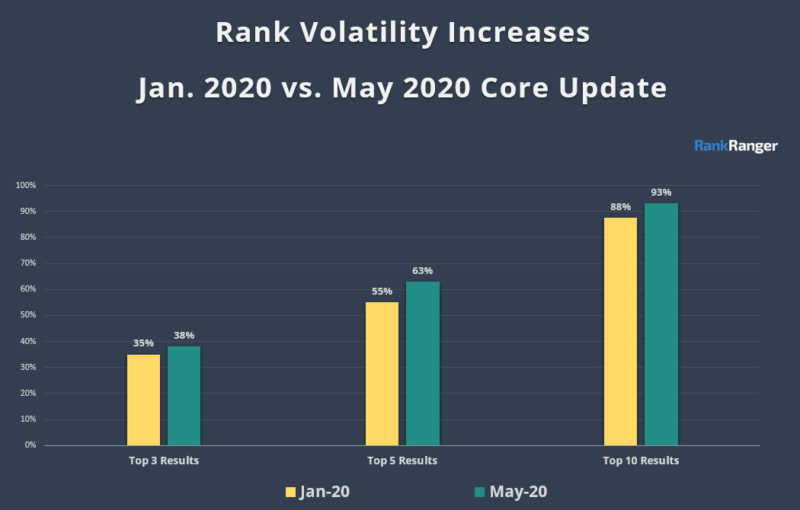
Oberstein added that this update is different than previous core updates because “this update appears to be far more uniform across the niches I looked at than your typical core update.” Here are two charts he shared illustrating the May core update’s impact on page one results across a number of industry verticals in RankRanger’s data set.
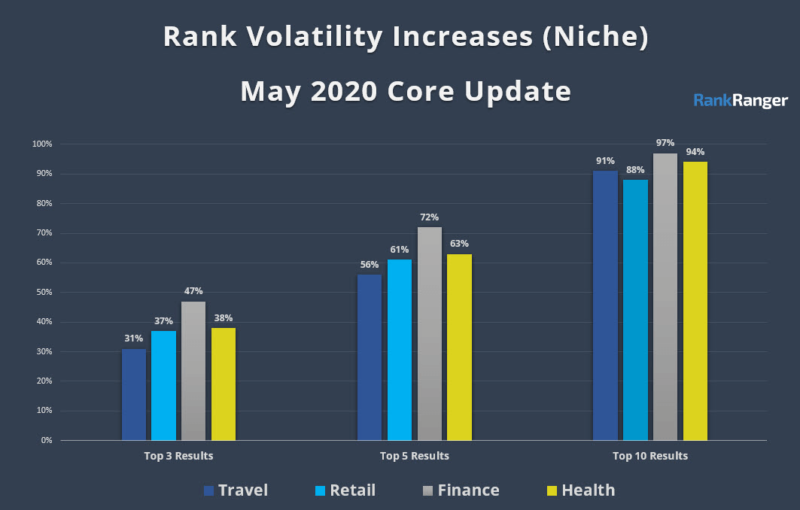
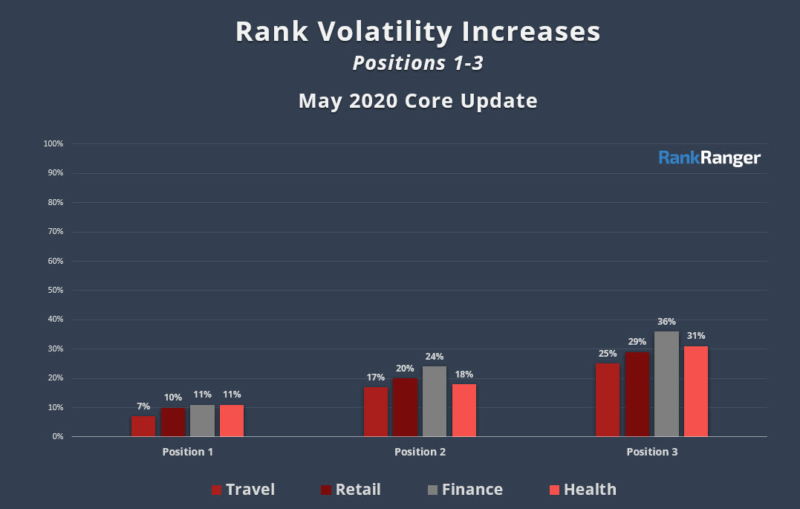
SEMRush. Yulia Ibragimova, Olga Andrienko and the SEMRush team prepared a lot of data for us on this update. SEMRush said that this update was bigger than the January core update as well. They said, “the May update is stronger and influencers more SERPs and positions.” The SEMRush sensor tracking tool is showing a score of 9.4, whereas the January update was closer to 8. So this was a big update relative to other core updates.
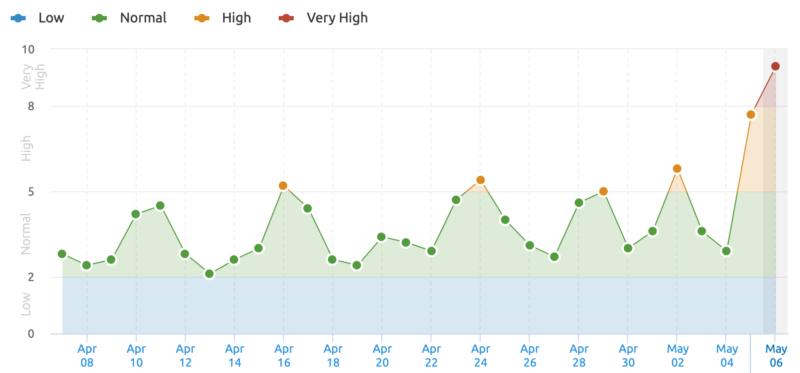
SEMRush data showed the industries most impacted were travel, real estate, health, pets & animals, and people & society. Here is the chart of breakdown volatility by industry from SEMRush:
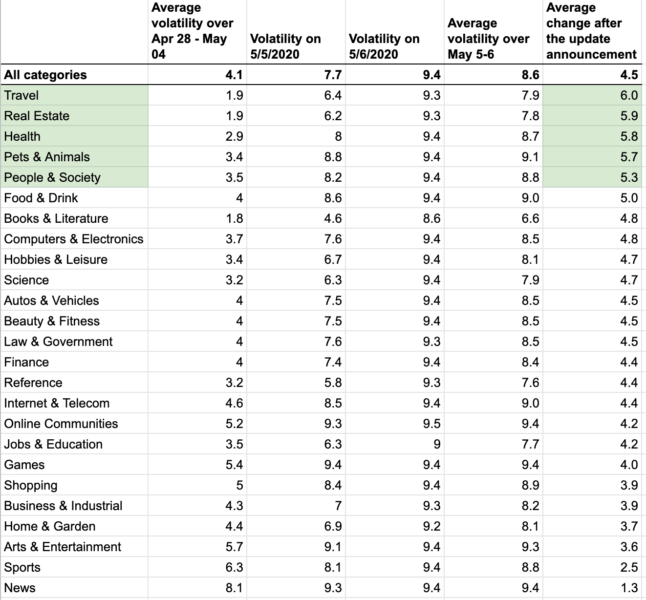
SEMRush also shared the winners and losers of this update. The winners were local.com, yellowpages.com, superpages.com, businesswire.com, prnewswire.com, globenewswire.com, xe.com, mapquest.com, and gamekidgame.com. The losers were linkedin.com (note, this site had a big issue yesterday), manta.com, allmusic.com, idaily.com, nypost.com, discogs.com, afiavillage.com, eventbrite.com, peoplepill.com and owler.com.
Moz. Moz has its Mozcast tool that tracks updates by temperature and it is showing some insane levels of heat the past couple of days: 103 degrees on May 4th and 112 degrees on May 5th.
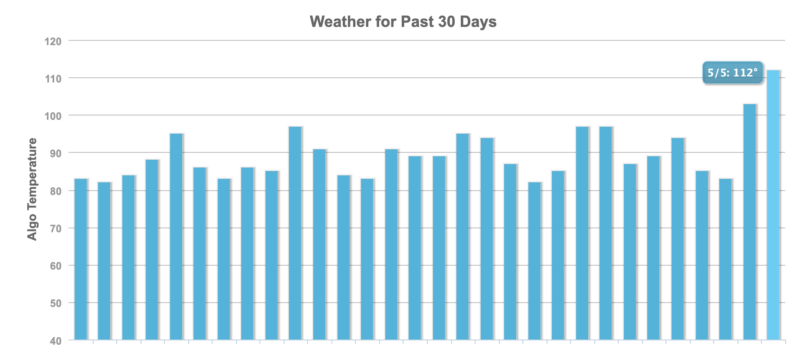
Dr. Pete Meyers from Moz told me that this May core update was the “second-highest Core Update on MozCast since August 2018 (AKA “Medic”).”
Search Metrics. Marcus Tober from Search Metrics told us this ” update seems to be broader than former updates. Less focused on typical E.A.T. areas. With former updates you normally have a large medical site between the winners like the WebMDs or Mayoclinics.” That wasn’t the case here,” he said.
“From my just a few hour analysis it seems that Google was working again on content factors combined with brand factors (maybe including CTR/user data). Spotify seems to be affected by the update, which is unexpected. Spotify.com was primarily growing for years. But the pages that ranked from open.spotify.com are thin content and have the login wall. Probably they have higher bounces than peers like Youtube and despite their strong brand get lower rankings. Music.apple.com was not winning nor losing,” Marcus told us.
Here are some charts that shows the moves across some industries by site from Search Metrics:
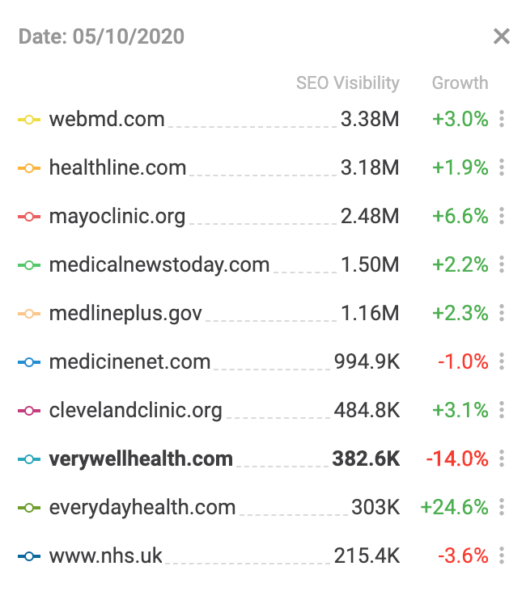
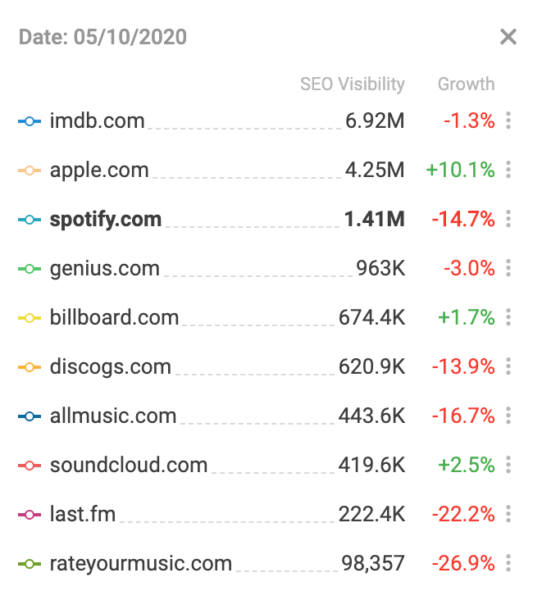
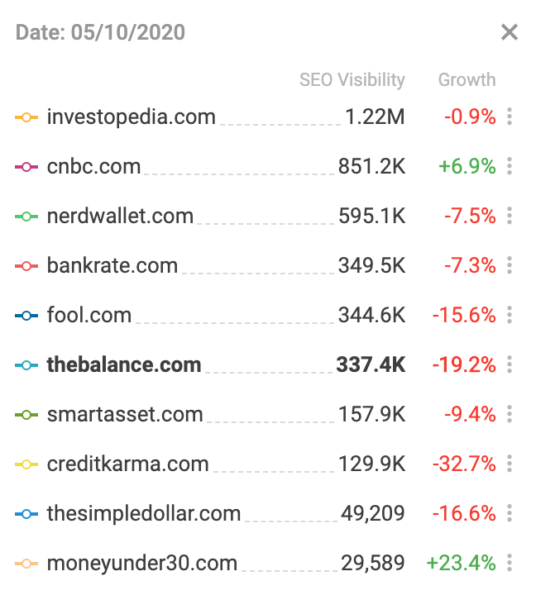
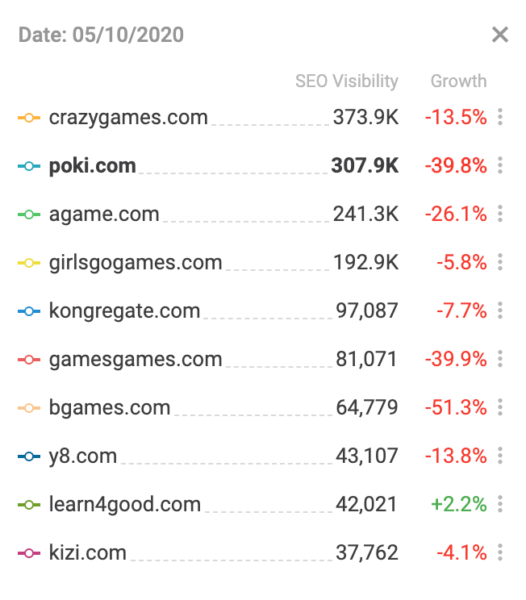
The SEO community. There is no lack of discussion within the SEO community in both the online discussion forums and on social media around this update. Some people claimed to have lost over 90% of their Google organic traffic, while others did well from this update. You can read some of these cases on the Search Engine Roundtable.
What to do if you are hit. Google has given advice on what to consider if you are negatively impacted by a core update in the past. There aren’t specific actions to take to recover, and in fact, a negative rankings impact may not signal anything is wrong with your pages. However, Google has offered a list of questions to consider if your site is hit by a core update.
Why we care. It is often hard to isolate what you need to do to reverse any algorithmic hit your site may have seen. When it comes to Google core updates, it is even harder to do so. If this data and previous experience and advice has shown us is that these core updates are broad, wide and cover a lot of overall quality issues. The data above has reinforced this to be true. So if your site was hit by a core update, it is often recommended to step back from it all, take a wider view of your overall web site and see what you can do to improve the site overall.
Related stories